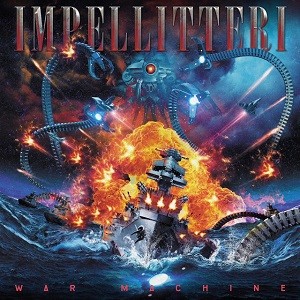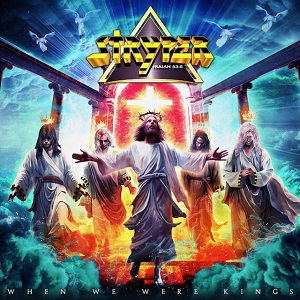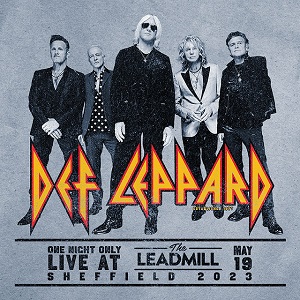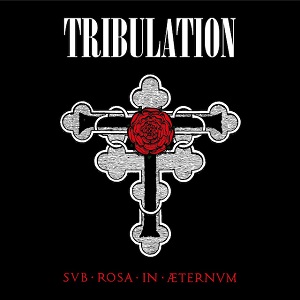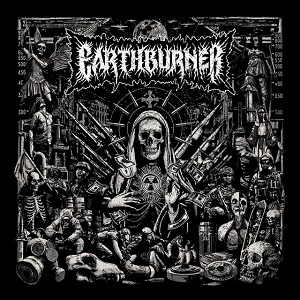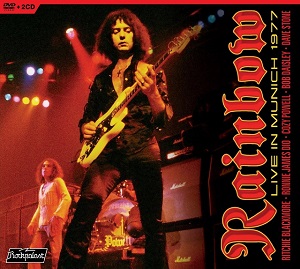VAN CANTO - Going Tribal
March 5, 2010, 14 years ago
Like Nightwish and Apocalyptica before them, Van Canto took what looked like an insane idea on paper and made it work. Three albums into their career and the German sextet has succeeded in selling the idea of a capella metal to the world, and not merely as a new way of covering the classics. The band's original compositions have always stood loud and proud beside their over-the-top renditions of Iron Maiden’s ‘Fear Of The Dark’, Manowar’s ‘Kings Of Metal’ and Metallica’s ‘Battery’, which is still the case on new outing Tribe Of Force. Even more so, as 11 of the 13 tracks on offer are Van Canto creations, meant to push the envelope further into the faces of those that have dismissed them as a novelty act. Proof that they’ve taken the saying “nothing ventured, nothing gained” to heart.
“That was the plan from the start because we don’t want to be known as a cover band,” says lone female vocalist Inga Scharf. “On the first album (A Storm To Come) we only had two cover songs, and I think our second album (Hero) was special because we had the mix of original and cover songs. That did help Van Canto a lot because covers work on the live stage. If there are people in the audience that don’t know us it’s easier for them to get into the band and realize that a capella metal works. When you know the songs you’re able to transfer what you’re hearing with the original, and I think that helped us. Whenever you cover a really big song, though, I think it’s dangerous for the musicians. Especially if I’m being compared to someone like Tarja Turunen (ex-Nightwish), who is a big idol for me.”“The biggest step between albums is from A Storm To Come to Hero because the first album was created without any reference,” she adds “We’d never played the songs live before. In the process of playing gigs we learned a lot about how to bring the songs across on stage, and that had an influence on the creation of the songs for Hero. On Tribe Of Force you can hear that Van Canto has really developed.”

Experience has also translated into a greater emphasis on production, or the lack of it. Founder Stefan Schmidt explains:
“The thing you said at the beginning about having to listen to the new album loud to get that metal feeling, that was intentional on our part. We were told quite often that Hero is a very cool album but people can’t listen to more that three songs in a row because there was too much vocal information (laughs). We tried to mix Tribe Of Force so it was a little more dynamic so that the fans can listen to it at different volumes and be comfortable with it. Hero was very loud even when you turned it down, so the music was close to the ear all the time. We tried to give the new album a bit more of a natural sound so that it’s heavy only when the listener wants it to be that way.”As impressive as a capella metal can be, the creative process is anything but spectacular or unusual.
“Stefan writes the songs, and he does it the way a member of a normal band would write. When he gets an idea he arranges them on piano or guitar and goes from there. There’s not really any special formula. Van Canto isn’t a band that jams in the studio to create the songs and sounds together. Stefan or one of the other guys might have an idea, he’ll explain it to the rest of us and we’ll try to figure out what kind of vocals we can use on that part. It takes the same amount of time that it would to write a regular song. Between working on the Hero album and playing live we gained a lot of experience, so we have a better idea of what works and what doesn’t. It goes quite fast, actually.”Tribe Of Force features only two covers song; Grave Digger’s ‘Rebellion’ with guest vocalist Chris Boltendahl and Metallica’s ‘Master Of Puppets’. Fans of the Hero album will likely find the abundance of original material disconcerting at first, but Van Canto’s take on the Metallica classic makes up for it.
“It’s a long song and a huge arrangement so it was very difficult in the studio, especially for the guys singing the guitar parts,” Scharf reveals. “It took them four days to do just their parts alone (laughs). It was a very hard song to do compared to the others on the album, definitely the hardest song Van Canto has done so far.”
The album also features an appearance by Sonata Arctica frontman Tony Kakko on the Van Canto original, ‘Hearted’, a song reminiscent of the Finnish quintet’s early years.
“I like Sonata Arctica very much so I’m very happy you say that,” Scharf laughs. “I’m a really big fan, so it was a huge honour for me to be able to song on a track with Tony.”Tony was in his own studio when he recorded his tracks and just sent us the files. It’s nice to have the technology because it makes things easier for us, but I think it would be a great experience to be together in the studio with these guest vocalists to record some tracks. We’re working on hopefully getting to perform with some of these guys one day.”“To be honest Sonata Arctica is one of my favourite bands where songwriting is concerned,” adds Schmidt. “When I wrote the song I didn’t know that Tony would be joining us, so it’s funny that it ended up sounding like a Sonata Arctica song “If you hear Tony sing you definitely know who it is – he’s got a very special timbre to his voice – and I definitely wanted someone with a high range. I was also thinking about asking Michael Kiske but I didn’t have his phone number (laughs).”
With the focus on developing their established and ultimately unique sound, Van Canto recorded with a real orchestra – the Staatsorchester Brandenburg – on the track 'Magic Taborea', which Schmidt refers to as a “great experiment.” When asked if they might push things even further in the future by, for example, inviting a guitarist to trade licks with Schmidt on a solo, he casually points out that it helps when the journalist in question actually reads the bio that comes with the promo copy of the album.
“Listen to the song ‘One To Ten’. In the middle you hear a guitar duel between me – starting – and Victor Smolski from Rage answering. The first lick is sung, the second one is played, the third one is sung, and so on. The double melody at the end of the solo is Victor and me singing / playing together. So, we did exactly what you wish (laughs). And you didn't notice it. That's great, because NOW I have the proof that I definitely sound as cool singing as Victor playing. Fuck yeah!”






